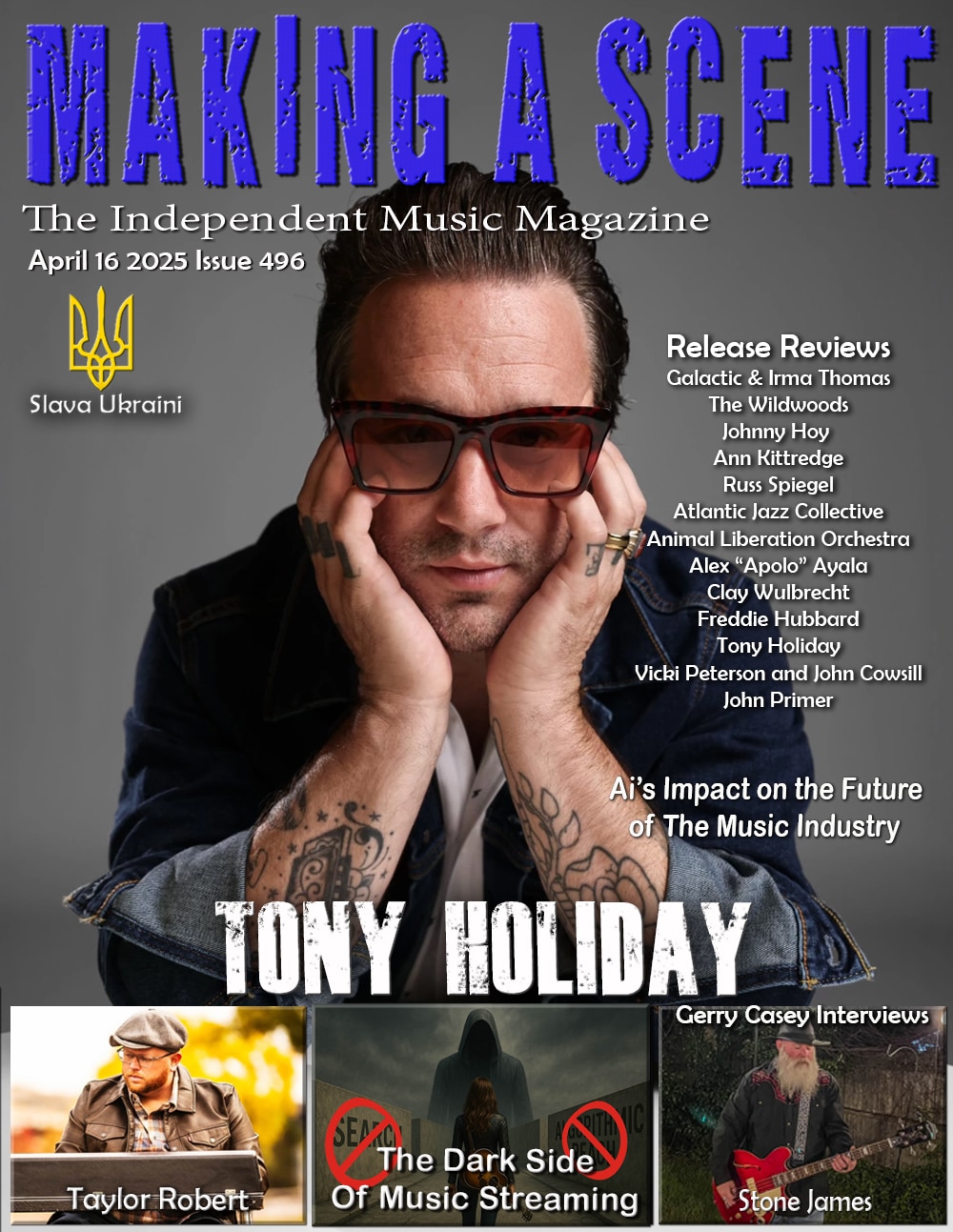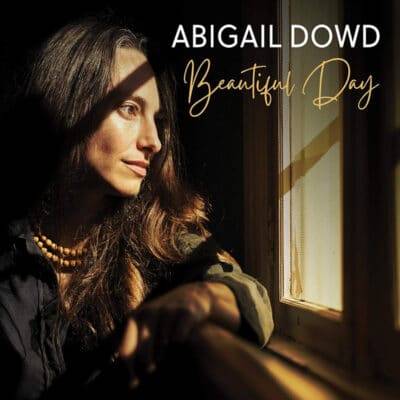Abigail Dowd Beautiful Day
Beautiful Day
Self-released
Last year folk singer-songwriter Abigail Dowd issued one of the year’s more provocative albums, her search for identity in Not What I Seem. She now returns with A Beautiful Day, another self-reflective effort, also filled with some haunting songs and a prevailing melancholy that in enough places emerges to find hope and solace in some of the things we take for granted. One striking aspect of this record in comparison to her last is the sound. It’s a comforting, warm, appealing mix of keys, dobro, pedal steel, and electric guitars mixed gorgeously by Grammy-winning engineer who also serves as producer, Jason Richmond (The Avett Brothers, Dom Flemons, Branford Marsalis). The album was recorded at the acclaimed Fidelitorium in Kernersville, NC. Backing Dowd are Joe MacPhail (keys), Austin McCall (percussion), Alex McKinney (dobro and pedal steel), Scott Sawyer (electric guitar), and Jason Duff (her husband) on bass.
To understand the source of these songs that Dowd claims she “caught rather than wrote,” one needs to understand her turbulent life during the 13-month period September 2018 to October 2019, when their home in Greensboro, NC was flooded six times. The phrase “go with the flow” takes on a couple of meanings here. The flow of water caused her to uproot several times, and the flow also appeared in the form of songs. She captures a wide range of emotions in these songs – certainly fear, restlessness, and loneliness but also freedom, faith, and gratitude.
Dowd became a nomad, forced to live with in-laws for three months, and after moving back in finding it difficult to breathe to the point where she thought she’d never be able to sing again. Her husband kept renovating the house and she was able to live there for seven months but during summer touring, floods rendered the home unlivable. This forced her to bounce to numerous friend’s houses, to camping, to a wide variety of settings, all along picking her guitar, memorizing lyrics, and recording into her phone. Songs would come to her in some strange places at all different times during the day, notably while sitting on a rock in the middle of a creek in Colorado and sitting at a stoplight on her way to a meditation class.
The album opens with the title track, imparting both a sense of loneliness and ultimately some hope that better days await. (let’s hope so after enduring six floods and ultimately a home that had to be torn down). “Diamond” is the realization that home is the inner you, not the physical house. “One Moment at a Time,” the single, is about proceeding through one step at time even if we’re unknowing about the destination. It’s the one she wrote while at a stop light while “St. Vrain” is the lovely string-plucked instrumental introduction to “River,” written while sitting on that rock in Colorado. The latter has references to baptismal water, and ironically water as a healing rather than the destructive force that it was being 1600 miles away in NC. It has some of her most passionate singing on the album, clearly a standout track.
“Apple Trees” and “After the Fall” are packed with vivid imagery about the farm life Dowd lived in Maine for five years, certainly a different lifetime. The latter makes references to childhood memories of a Pentecostal preacher. The identity seeking “Judgement Day” is a little bluesy and thematically closer to her previous album than most of this one. She claims the words just poured out effortlessly as she ruminates on the institutionalizing and stereotyping of females through generations, colored by some glimmering piano from MacPhail.
“Don’t Want to Talk About It” is written from the perspective of someone who turns to the bottle rather than conversation to deal with pain and trauma – “They say put the bottle down I know/ I’m hard to be around/ What’s wrong with a drink or two to clear my mind/ Without that look from you every time.” “Rise Above” is also bathed in dark, ethereal sounds but is the epitome of the album’s central message with these closing lines “While I navigate the darkness/ And walk through hell to rise above.” “Run” relates to the loss of native language, inspired by passage in the Wade Davis book Wayfinders, an appropriate read considering her situation at the time.
As the nomadic Dowd found herself in so many settings in the past year, the closing “Grandmother Moon” is as fitting as any tune here, written after a Sacred Fire Foundation event, an organization whose mission is to keep indigenous wisdom alive through generations. Hymnlike in tone, it puts a cap on the journey from the opening tune that seeks hope, to its expression of gratitude – “I will carry the light/ So I can find my way/ And when at night I lay my head/ To creator I give thanks.”
On this, her third album, Dowd makes a major leap forward, delivering an impeccable record, lyrically and musically; clearly one of the year’s top singer-songwriter efforts to date.
Jim Hynes
Buy Us a Cup of Coffee!
Join the movement in supporting Making a Scene, the premier independent resource for both emerging musicians and the dedicated fans who champion them.
We showcase this vibrant community that celebrates the raw talent and creative spirit driving the music industry forward. From insightful articles and in-depth interviews to exclusive content and insider tips, Making a Scene empowers artists to thrive and fans to discover their next favorite sound.
Together, let’s amplify the voices of independent musicians and forge unforgettable connections through the power of music
Make a one-time donation
Make a monthly donation
Make a yearly donation
Buy us a cup of Coffee!
Or enter a custom amount
Your contribution is appreciated.
Your contribution is appreciated.
Your contribution is appreciated.
DonateDonate monthlyDonate yearlyYou can donate directly through Paypal!
Subscribe to Our Newsletter
 |  Spotify |  Deezer | Breaker |
 Pocket Cast |  Radio Public |  Stitcher |  TuneIn |
 IHeart Radio |  Mixcloud |  PlayerFM |  Amazon |
 Jiosaavn |  Gaana | Vurbl |  Audius |
Reason.Fm | |||
Find our Podcasts on these outlets
Discover more from Making A Scene!
Subscribe to get the latest posts sent to your email.














































